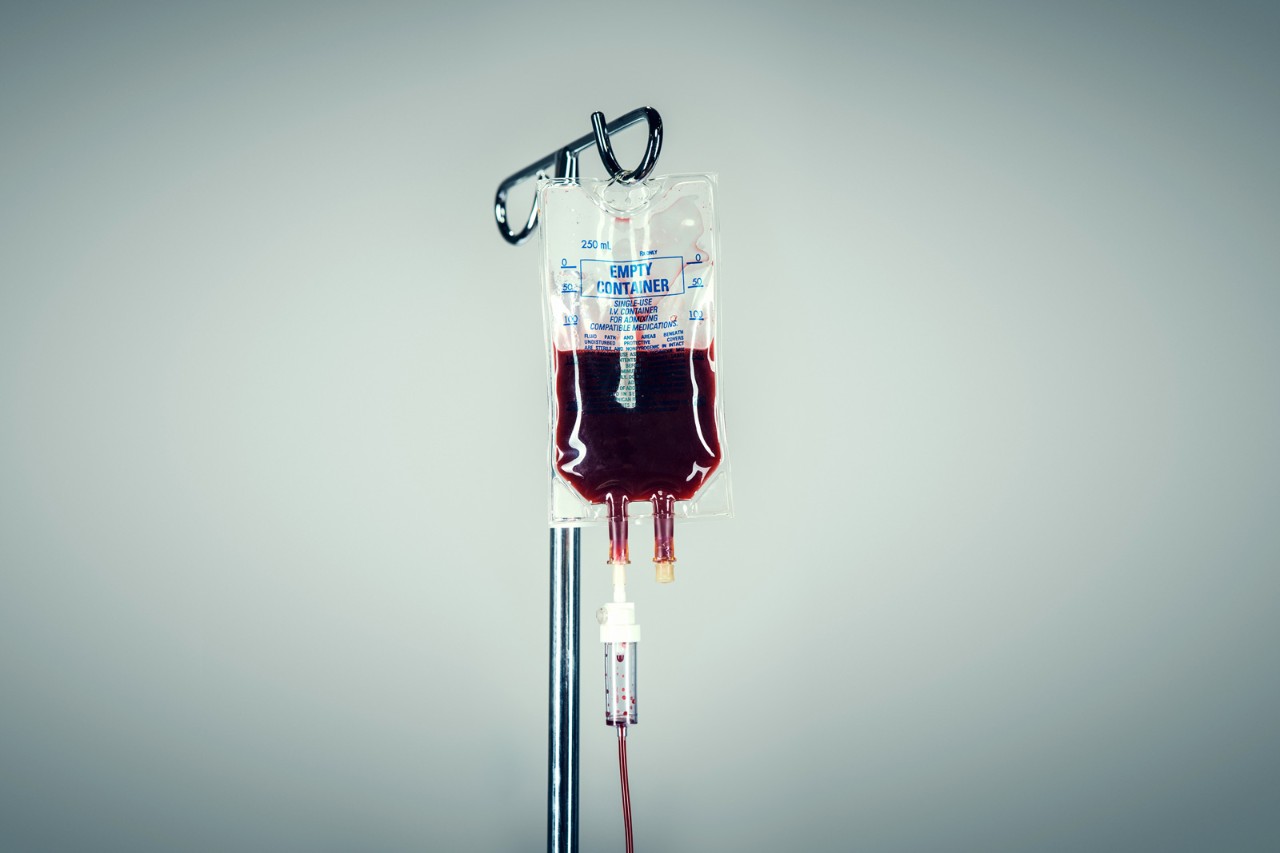Where you can find reliable health information
Let’s be honest: we all google our symptoms. But doing your own research rarely gives you the reassurance you seek. Experts reveal where to find reliable health information.

Whether it's a lump behind the ear or a rash on the forearm - most people with complaints first turn to "Dr. Google": People search for symptoms, browse forums and read guides. By the time they go to the doctor they’ll have spent a lot of time looking into their supposed complaint.
We asked five experts what sources of information they’d particularly recommend.
Good points of contact for researching childhood illnesses
Research tip from Reto Villiger, children’s doctor in Wettingen: “The more complex the symptoms, the less likely you are to find what you’re looking for on the internet.”
“Parents often look up specific disorders or their children’s symptoms on the internet. Often I experience that as a good thing because the parents have given some thought to the problem and I don’t have to cast the net so wide. But searching on the internet can also be very disconcerting. In those cases it’s important to talk to a doctor. The internet provides a hotchpotch of information of very varying quality, and often it’s difficult for laypeople to gauge what’s reliable.
Another thing to bear in mind is that the web is much better at providing information on diagnoses that have already been made than at helping you make your own diagnosis on the basis of a specific set of symptoms. Generally speaking, you should always consult a doctor when there are indications of a dangerous disease.”
Tips:
- Official bodies: Free and good quality information on diseases can be found on the websites of medical associations such as the Swiss Society of Paediatrics, the health departments (e.g. www.bag.admin.ch) or disease-specific organizations such as the Swiss Lungenliga (lung problems) or the Swiss Allergy Centre aha! The disadvantage is that this information is usually not symptom-oriented.
- Books for download: The book "Lisa, Daniel and ..." is recommended for parents of young children, as it is structured according to symptoms.
- Health Guide: For families with a migration background, the Health Guide to Switzerland is really useful. It explains the Swiss healthcare system in many languages.
- ”I can also recommend the free https://deutsch.medscape.com/ platform. It has fascinating articles and the latest findings around health.”
Understanding doctor's letters and findings better
Beatrice Brülke from the washabich.ch (What have I got?) advice platform: “All patients should be able to get information they can understand.”
“Patients who are having problems with the medical jargon come to us with findings and doctors’ reports from all areas of medicine. On our platform, “Was hab' ich?” (What have I got? Only available in German), medical students translate these documents, free of charge on a voluntary basis, into language people can understand. They don’t just do a word-for-word translation. They also provide background information that you need to really understand the findings.
Many patients report back that they’ve finally been able to grasp what’s wrong with them and have thus been able to deal with it more consciously. Quite a few of them are more health-conscious, do more sport or are more compliant with treatment, for example: The first request was sent in after we’d been online only 12 minutes, and after four weeks we’d already received 500 submissions. That was back in January 2011. Next year we will be celebrating our 10th anniversary. To date more than 2,200 medics have got involved in “Was hab' ich?”, translating more than 45,000 reports and findings for patients.
Our mission? In the future we want all patients to be able to get good information on their health. It was us who had the idea for easy-to-read medical reports given to the patient, for example. We've also developed a communication training programme for medics. They can choose it as an elective course at university to learn how to talk with patients on equal terms."
Tips:
- Look up 'What do I have'or submit your findings. We have collected our most important tips on this topic here.
- On befunddolmetscher.de we've already posted easy-to-understand explanations of many technical terms so that patients can look them up for themselves.
Rating platforms: caution is advised
Erika Ziltener, President of the Umbrella Association of Swiss Patient Centers: "Rating platforms should be treated with caution."
“Is Google a blessing or a curse for people looking for medical information? In my experience, it can leave people feeling much more anxious. The problem is that there’s no quality control. You can find good information, but you also come across a lot of nonsense or half-truths. It’s particularly difficult if you’re trying to find out about the quality of hospitals or doctors before having treatment.
In my opinion there has yet to be a single rating platform in this area that’s of any real use to laypeople. Given that people’s satisfaction with their doctor or treatment depends heavily on whether they were cured or not, these platforms should be taken with a pinch of salt. Naturally someone who gets better will be more satisfied.”
Tips:
- Patient rights: go to a patients' centre for information about your rights as a patient. For example, everyone has the right to a complete patient file. And: once a month, the patient center offers a free consultation day.
- Before treatment: Rather than consulting internet rankings or comparison portals, ask your trusted family doctor or a patients’ centre. The best rating portal is anq – although the information it provides is difficult for laypeople to understand. Your patients’ centre will be glad to help.
- Many hospitals have produced really good checklists and fact sheets which you can download from their website or order in printed form.
- Before undergoing major surgery, be sure to get an independent second opinion, i.e. from a doctor at another hospital. Important: It should be clear that he will not perform the procedure himself later.
- Your own attitude: get information, look into it and ask questions. Work out whether the expected benefits of treatment will have a positive impact on your quality of life and justify the risks. Stay persistent and critical, talk to people, and take time to think things through. In other words, take charge of your own healthcare.
Good information points for mental health problems
Marcel Wisler, co-head of health promotion at inCLOUsiv: "We connect people virtually"
The inCLOUsiv platform went live following the outbreak of Covid-19 to support people in matters of mental health. But our vision is to connect the people affected, their families and professionals in the long term as well. Social inclusion and participation, and being able to make your voice heard, are important factors when it comes to mental health.
Digitalisation is providing many options for sharing information and social networking regardless of time and place. By early 2021 the platform will be present with a variety of topics. We also want to find out what the needs of our users are."
Tips:
- inCLOUSiv forums: Our low-threshold forums are a great place to discuss current topics. We offer guided and hosted forums.
- Livestream: In our hosted livestream, those affected and experts are available live for an hour to answer questions. This means participants' needs can be addressed directly. We cover different themes, for example in talks with members of different generations, politicians and policymakers, and discussions with experts.
- Kontext" magazine: Our trade magazine is published twice a year. covering a wide range of mental-health-related topics.
- We also recommend these links on the subject of mental health: Pro mente sana (including advice and guides), Ensa (first aid for mental health) and Wie geht's dir? Campaign: This is how you talk about topics relating to the psyche)
More human points of contact in medicine
Annina Hess-Cabalzar, president of Akademie Menschenmedizin (amm): "Often there's no trusted carer who know the person's life history."
"Do I really need this operation? Where do the limits of medicine lie? Do I have to take action now or can I wait? At Bistrot Chez Marion (Zurich), retired doctors as well as psychologists, social workers and other specialists are available twice a month to provide free advice. The 'amm Café Med' is an offer for all generations; for insecure patients, for relatives, but also for professionals.
What makes it special is that people sit together at a table and chat in a relaxed atmosphere. There's no time pressure. The specialists listen and help people make the right decisions. The advisors don't make diagnoses or prescribe therapies. But they do listen carefully to the people seeking advice and talk about medical matters in plain language.
Most of those seeking help are looking for a feeling of security and assurance, regardless of the medical issue. What I personally have learned from these conversations is that people often don't have a family doctor, someone they trust, who knows their life history, can guide them through their illness and recommend treatments and set limits adapted to their situation.
Tip:
- Akademie Menschenmedizin amm offers its services in the following cities: Zurich, Lucerne, Winterthur and Basel and from September 2020 in Bern. In preparation: St. Gallen. You do not need to log in. All information on the concept, dates and specialists can be found here.


